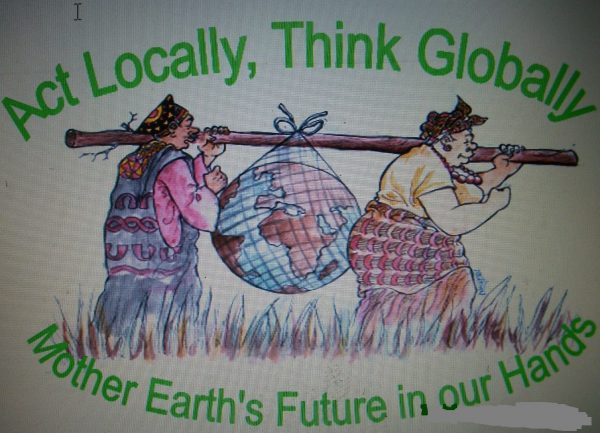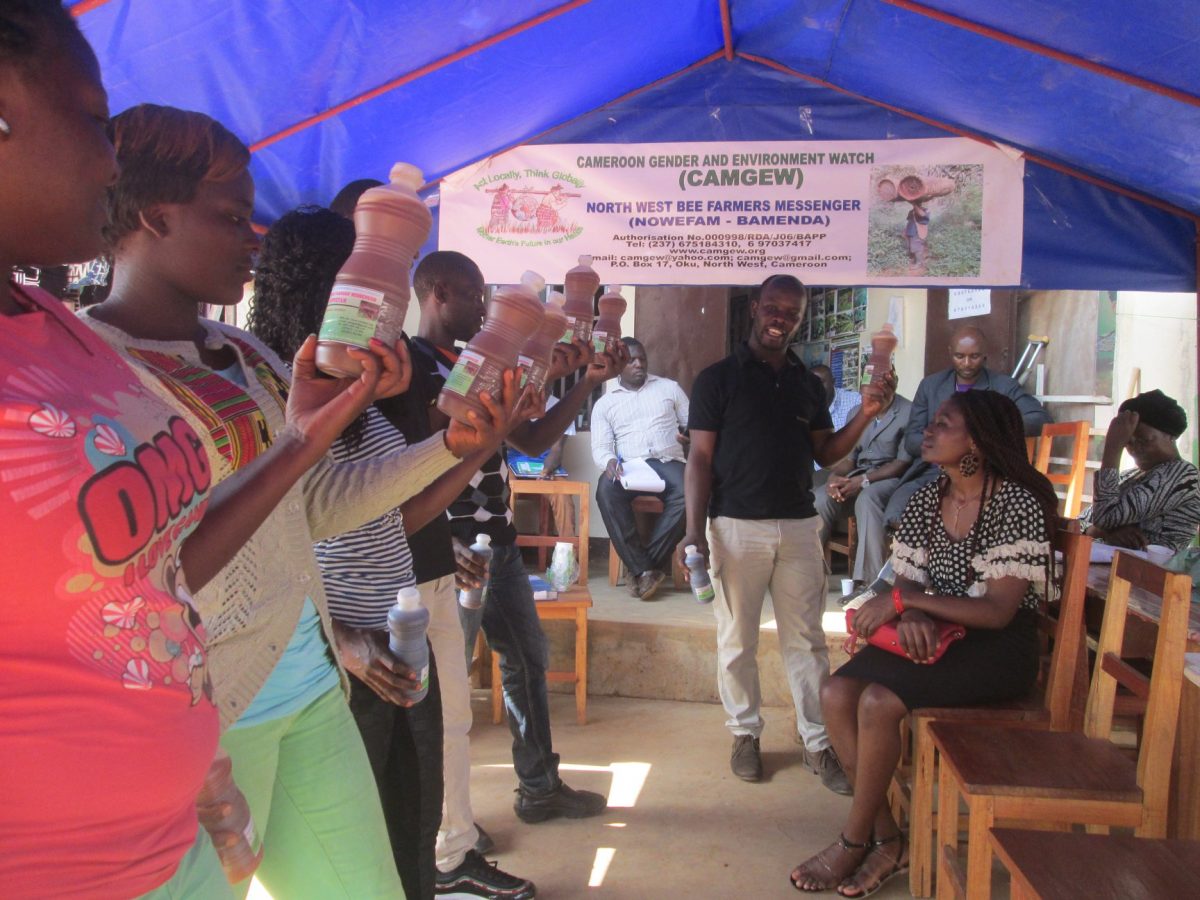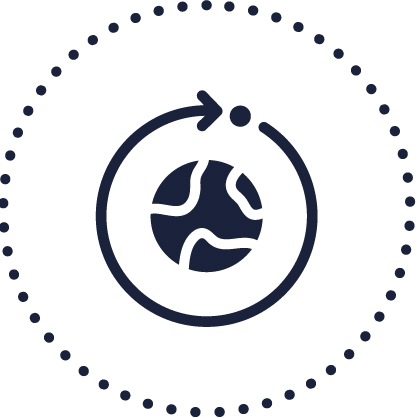Developing the Honey Value Chain for Kilum-Ijim Forest Conservation and Livelihood Improvement
Cameroon Gender and Environment Watch (CAMGEW) is a not-for-profit organization created in October 2007. We do environmental protection by strengthening the capacity of community members, especially women and young people, in eco-businesses and forest regeneration for livelihood improvement in the Kilum-Ijim Forest area.


Overview of the project
CAMGEW – Cameroon Gender and Environment Watch’s project is being carried out for communities around the Kilum-Ijim forest area. It provides an innovative model for biodiversity preservation, based on community forest-management to increase the production of honey, and on the development of markets for finished products to generate income for the local populations living in and around those highly biodiverse areas.
The project aims to increase the number of trees especially bee loving trees in the Kilum-Ijim forest, and increase honey production. The project will also strengthen the honey value chain development by improving the production, quality of the finished products, and developing good markets. The program trains bee farmers in honey production, bees wax extraction from honey and transformation of honey products to detergents, lotions, candles, honey juice and wine.
Project beneficiaries receive training in entrepreneurship, and in honey value chain development. This leads to job creation, and generate revenues for the local population. The development of this green value chain reduces pressure on natural resources, encourages communities to support conservation efforts, promotes community solidarity, builds capacity among community leaders, including women, and improve the livelihood of the population.
The main purposes are to 1/ preserve the forest of Kilum-Ijim, and 2/ support the forest communities to improve their livelihoods.
implementation
08/01/2019 project still in progress
Between 2012 and 2020, CAMGEW has successfully:
- Planted over 87300 bee-loving trees in the forest of Kilum-Ijim
- Conducted forest education for more than 56000 community members
- Developed 3 tree nurseries with over 100.000 tree
- Trained over 2000 bee farmers in honey production, its product quality control, and bees wax extraction.
- Distributed above 1354 beehives to trained bee farmers
- Helped organize over 2000 bee farmers into 5 Oku White Honey cooperatives located around the forest
- Women and youths were both allocated at least 30% of the positions in honey cooperatives to encourage them in pursuing apiculture
- Created a CAMGEW-HONEYSHOP in Bamenda urban center to convert bee farmers honey to money. The Honey shop sells various honey, bees wax, candles, bee suits, bee smokers, honey wine, honey juice, bees wax and powder soap, body lotion, etc.
- 225 women and youths have been trained in entrepreneurship, and in honey value chain development
- 161 women and youths have been trained in the production of bees wax soap, powder soap and candles
- 59 women and youths have also been trained in the production of honey juice and wine
- Created 2 Forest multi-stakeholder platforms [one in Oku and another Nso for Bikov community forest] to exchange ideas on forest issues and assist in decision making
- The 7 Forest Management Institutions (FMIs) in the region of Kilum, that manage community forests, have been reorganized by CAMGEW and other stakeholders after more than 10 years after their terms in office ended.
- 777 farmers have also been trained in agroforestry techniques
As of December 2020:
- About 1600 women have been trained to increase business skills
- 1325 women received financial assistance in the form of loans of about US$ 5500 monthly as alternative sources of livelihood to the forest. This served as forest microfinance for women
- 24 teenage boys and girls have been trained in dress making, shoe making, and hair dressing
- 20 teenage girls have also been trained in recycling plastics, and old African fabric to produce jewels, hand bags, belts, etc.
- More than 2300 women and girls have received counseling to help them make decisions and get out of the social challenges. Where necessary they were supported financially through CAMGEW microfinance scheme to better integrate in the society.
- 400 women were also made aware / educated on the right to legalization of marriage
- 200 women were educated on mitigation measures to physical, psychological and economic violence.
- 78 teenage-mothers increased their knowledge about better nutrition and care for mother and child using locally available food
- 104 teenage girls were educated on safe sex to reduce sexually transmitted diseases, and unwanted pregnancies.
As of 2020, thanks to the environmental education sessions that had been carried out to over 56000 people in the Kilum-ijim forest area, which helped turning people into nature lovers, and change negative behavior towards the environment, bushfires were reduced from more than 7 on average in 2012 to zero in 2018, 2019 and 2020.
In 2014, one bushfire alone destroyed close to 1000 hectares of the forest. In 2017, one bushfire occurred, but this time more than 70 community members, mainly bee farmers, went to the forest to tackle it quickly, so only less than 5 hectares were destroyed.
The more we train community members to become bee farmers, the more bushfire is prevented and managed. No bee farmer wants to see his/her beehive burnt, so they prevent bushfire, and as a result, help in forest protection and preservation.
APICULTURE = JOBS = GENDER EQUALITY = MONEY = FOREST CONSERVATION.
CAMGEW-Honeyshop becomes a CLIMATE SMARTSHOP because it helps fighting against bushfires that contribute to greenhouse gas emissions, thus to climate change. The market for honey must be available to engage communities to protect forests.
This project has been funded by multiple donors:
- PPI-IUNCN
- UNDP
- Swisshand Foundation, Switzerland
- Associated Country Women of the World-UK
- Critical Partnership Ecosystem Fund
- Bees for Development-UK
- The Pollination Project
- Man and Nature-France
organisation
Cameroon Gender and Environment Watch (CAMGEW) is a not-for-profit organization created in October 2007 with authorization number N° 000998/RDA/JO6/BAPP to look for a solution to environmental and women’s issues in Cameroon.
CAMGEW works locally and thinks globally, integrating gender in solving environmental problems in Cameroon. Between 2012 and 2018, CAMGEW planted 75,000 bee-loving trees in the Kilum-Ijim forest, and trained 1,018 bee farmers in honey production, its product quality control, and bees wax extraction.
It has also distributed above 895 beehives to trained bee farmers and organized above 1000 bee farmers into 5 Oku White Honey cooperatives located around this forest. It created a CAMGEW-HONEYSHOP in Bamenda to convert honey to money. 18 youths were trained in 2018 on entrepreneurship in honey value chain development for 3 weeks, and are now active in the honey value chain.
CAMGEW has succeeded to create a Forest multi-stakeholder platform to exchange ideas on forest issues, and assist in decision making. The 7 Forest Management Institutions (FMIs) in Kilum forest that manage community forests have been reorganized by CAMGEW, more than 10 years after their terms in office ended. 772 farmers have also been trained on agroforestry techniques.
As of December 2018, about 1,580 women had been trained on business skills, and 1,325 women received financial assistance in form of loans of about US$ 5,500 monthly as alternative sources of livelihood to the forest. 24 teenage boys and girls had been trained on dress-making, shoe-making and hair-dressing. It has also developed 3 tree nurseries with 100,000 trees.
CAMGEW is currently working hard to develop the honey value chain in and around Kilum-Ijim forest.




